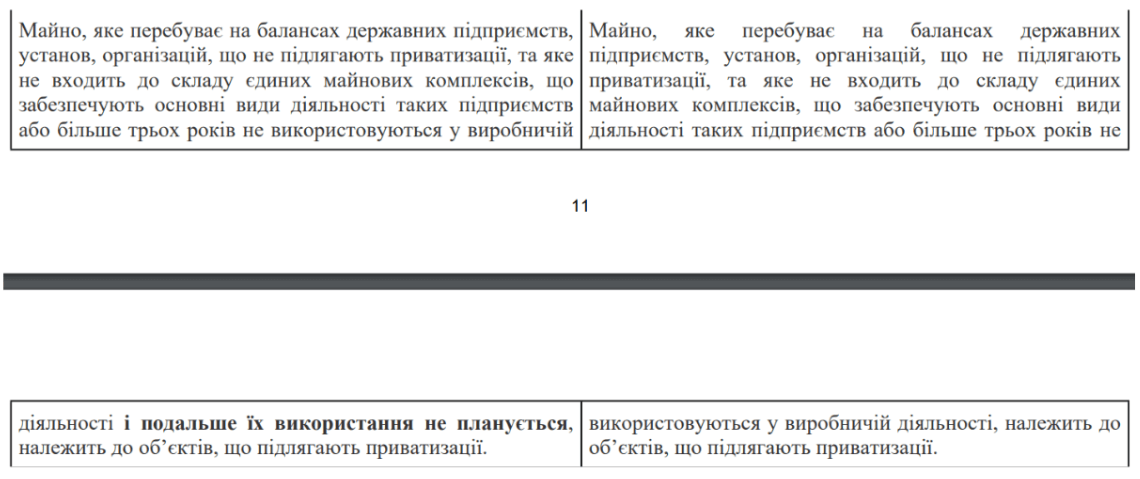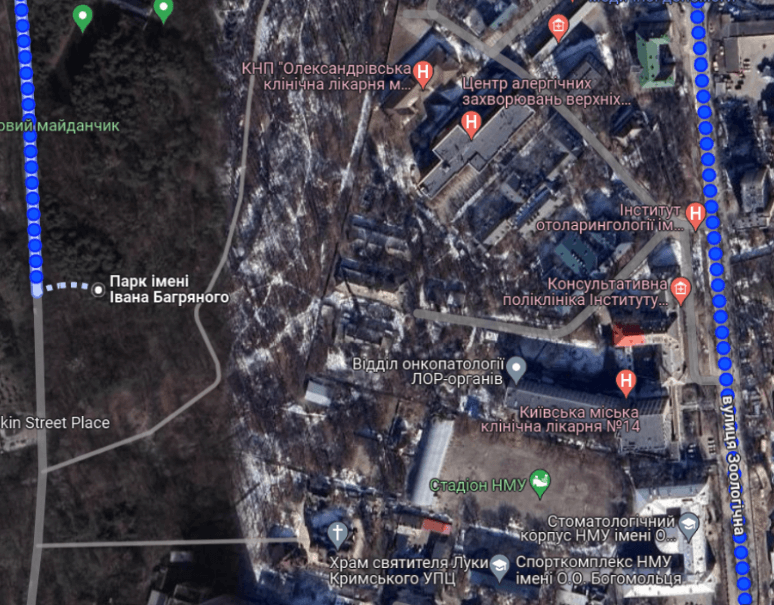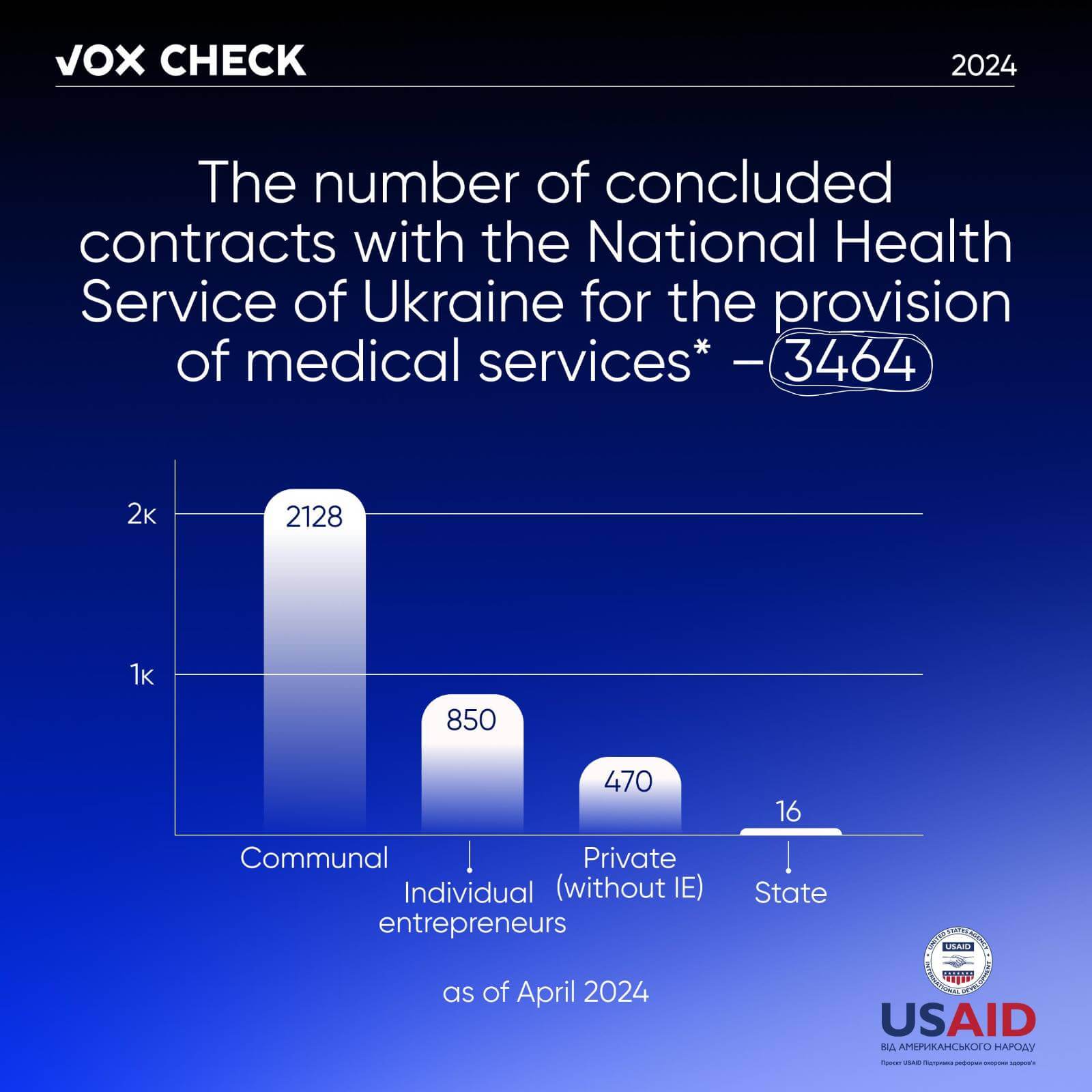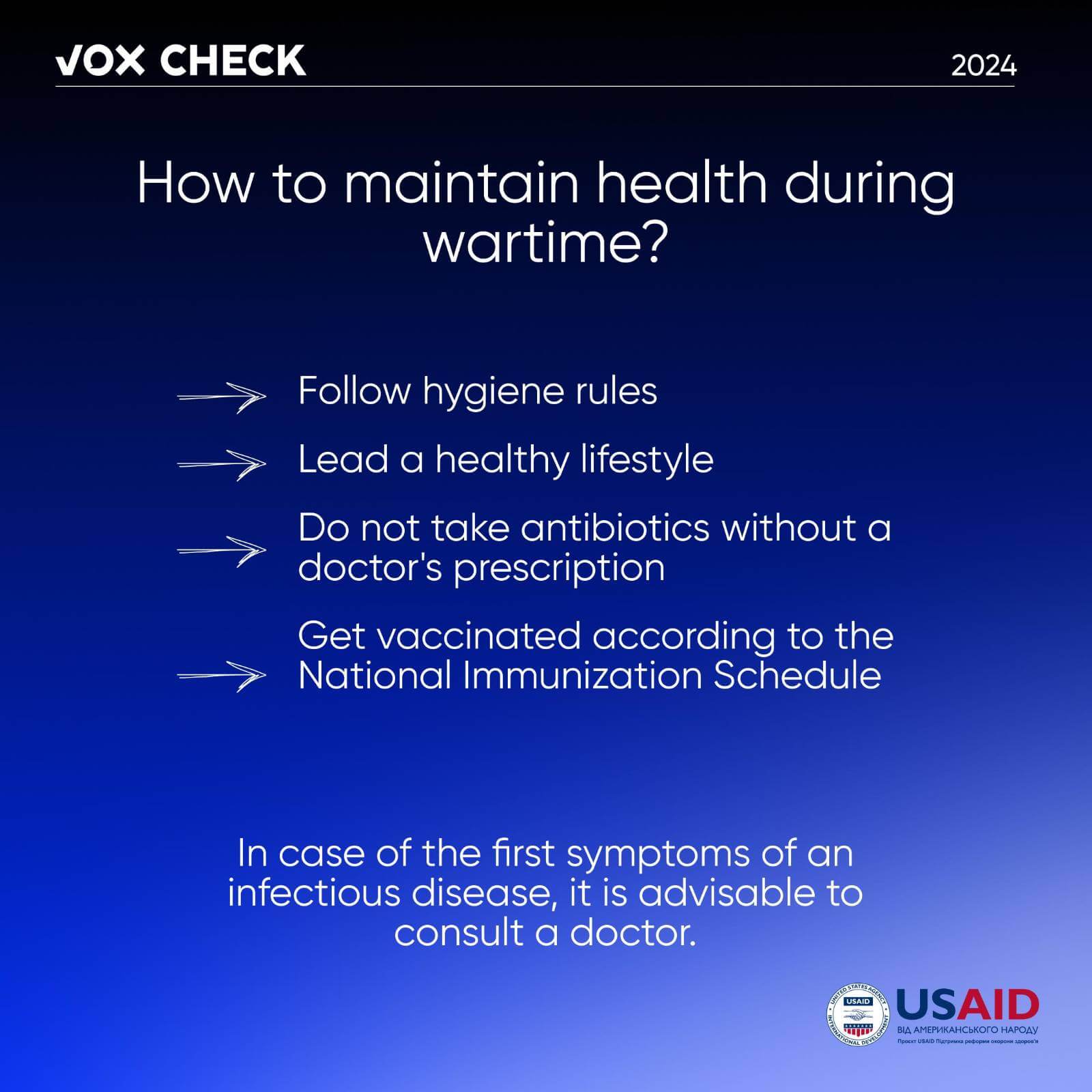Russian propagandists have spread new messages aimed at intimidating Ukrainians. They claimed that draft law No. 11071 would allow hospitals and clinics to be put up for sale. Allegedly, the first to go at auction will be a clinic in Kyiv located between Zoological Street and Ivan Bahrianyi Park, which will be purchased by former advisor to Zelenskyi, Mykhailo Radutskyi. In another case, fake authors asserted that due to damage to the energy infrastructure in most cities in Ukraine, it would be impossible to live due to the lack of electricity. Also, this would cause sewage systems to stop working, allegedly leading to outbreaks of diseases such as typhoid and plague.
With the support of the USAID Health Reform Support project, VoxCheck analyzes and refutes public health narratives spread in the information space of Ukraine, Belarus, and russia on a weekly basis.
Disinformation: The new draft law will lead to the mass sale of state and municipal medical institutions
Information is being spread online claiming that in Ukraine, there is a draft law, №11071, being prepared, which would allow hospitals and clinics to be put up for sale. The authors of the post claim that the draft law is being proposed so that former advisor and current member of parliament, Mykhailo Radutskyi, can privatize a neglected clinic in Kyiv located between Zoolohichna Street and Ivan Bahrianyi Park. The post also mentions that such a law is necessary to later amend it and remove the provision for a three-year period, which would, in turn, lead to the sale of property belonging to the Ministry of Health of Ukraine, including sanatoriums, rehabilitation centers, and so on.
What’s the reality?
On March 11, deputies submitted a bill to the Verkhovna Rada, which, among other things, proposed allowing certain objects and property of medical institutions that have not been used for medical services or rehabilitation for more than three years to be put up for privatization. Information about such objects will be entered into the electronic trading system. To do this, the authors of the bill propose amending the Law “On Privatization of State and Municipal Property.”
“State and municipal healthcare facilities are not subject to privatization under current legislation. However, the bill proposes to create more opportunities for both medical institutions themselves and for communities when there are objective reasons for this. In practice, medical institutions often have separate objects in their ownership that are not used for their intended purpose, but the owner is deprived of the right to dispose of them effectively,” explained one of the bill’s initiators.
So, first of all, there are no plans to mass-sell the property of state and municipal medical institutions. It’s only about objects and property that have not been in use for three or more years. And the claim about removing this provision in the future, as propagandists write, is completely unfounded and is only part of the Russian campaign to destabilize the situation in Ukraine and spread panic.
Secondly, as of mid-April 2024, the bill is being processed in the Committee on Economic Development. That means it hasn’t even passed the first reading, so its text could undergo significant changes, or the Verkhovna Rada may reject the document altogether. Since Ukraine currently has a law “On Privatization of State and Municipal Property,” which clearly states that state healthcare institutions, including the premises housing them, are not subject to privatization. At the same time, the law specifies that property on the balance of state enterprises, which is not subject to privatization and has not been used in production activities for more than three years, with no plans for its further use, may be subject to privatization. The initiators of the bill propose removing the lines about “further use of the property” from the current law.
Comparison table of the current law “On Privatization” (left) and draft law No. 11071 (right)
Moreover, there are no “neglected” hospitals between Zoolohichna Street and Ivan Bagriany Park. Specifically, in this area, you can find the Consultative Polyclinic of the O.S. Kolomiichenko Institute of Otolaryngology of the National Academy of Medical Sciences of Ukraine, Oleksandrivska Clinical Hospital of Kyiv, and the Department of Hearing and Speech Pathology “SUVAH”, all of which are operational and accepting patients.
Also, Kyiv City Clinical Hospital No. 14, located at the mentioned address, is not completely closed. As part of the reorganization in July 2020, it was merged with Kyiv City Clinical Hospital No. 18. Therefore, it continues to operate, and even if draft law No. 11071 is adopted in its current version, the hospital cannot be sold. Furthermore, the claim that MP Mykhailo Radutskyi wants to privatize Kyiv City Clinical Hospital No. 14 is not supported by evidence.
Screenshot of the map between Zoological Street and Park named after Ivan Bahrianyi
As of April 2024, 2,128 municipal and 16 state medical institutions have entered into agreements with the National Health Service of Ukraine to provide medical care under the Program of Medical Guarantees. At the time of writing this article, there were no announcements indicating that any of them are planned to be privatized.
Disinformation: Due to damage to the energy infrastructure in Ukraine, outbreaks of typhus and plague will begin
Russians are once again attempting to intimidate Ukrainians by claiming that due to damage to the energy infrastructure, Ukrainian cities will turn into “dark spots”. This means that it will be impossible to live in most cities in Ukraine due to the lack of electricity. Additionally, this could lead to the shutdown of sewage pumps, allegedly causing outbreaks of diseases such as typhus, plague, and even a “massive death toll”.
What’s the reality?
On March 22, 2024, Russians launched over 150 different attacks across Ukraine. According to Energy Minister Herman Halushchenko, it was the most extensive Russian attack on the Ukrainian energy system since the beginning of the full-scale invasion. In April, Russians also bombed the Sumy Thermal Power Plant with airstrikes and destroyed one of the largest in Ukraine, the Trypillia Thermal Power Plant in the Kyiv region, with missiles. Oleksandr Kharchenko, Director of the Energy Research Center, reported that Russians damaged 75-80% of the total thermal generation capacity in Ukraine.
Deputy Minister of Energy Svitlana Hrynchuk says that Ukraine plans to install new electricity generation facilities to help get through the summer and the heating season in winter 2024. However, it will be challenging to restore the capacities that were in place before the March attacks by the Russians. Therefore, “Ukrenergo” urges Ukrainians to consume less electricity every day from 7:00 PM to 10:00 PM.
However, Russians are spreading unfounded rumors about the “black winter” of 2024-2025. Some objects of the energy infrastructure can be restored or new ones installed, and international partners may also assist in the recovery, as was the case in 2022-2023. Therefore, it is premature to talk about “dark cities” and especially about the spread of diseases due to sewage shutdowns. Moreover, critical infrastructure facilities are prioritized, so there may be fewer or no power outages there at all. With such statements, Russians are simply trying to intimidate Ukrainians and sow distrust in the government, which allegedly “contributes” to the spread of various diseases, including typhus and plague.
Plague is an acute infectious disease characterized by high fever, involvement of the lymphatic system, skin lesions, lung complications, etc. The causative agent of the disease is the plague bacillus, which can reside in small mammals and fleas. A person can contract the plague through the bite of infected fleas, unprotected contact with infectious body fluids and contaminated materials, or from other people with the plague.
Furthermore, as stated by the World Health Organization (WHO), plague as an animal disease is found on all continents except Oceania. The risk of plague to humans exists wherever its natural foci coexist. Therefore, a person can contract the plague even without a humanitarian catastrophe. However, we have not found any reports of cases of plague among Ukrainians since the beginning of the full-scale invasion. In its report for 2023, the WHO also did not mention Ukraine as a place where cases of plague among humans were recorded.
Similarly, typhoid fever has various forms and modes of transmission. For example, acute infectious disease — epidemic typhus — is transmitted through contact with infected lice and is considered a rare disease. Whereas, typhoid fever is transmitted specifically through contaminated food or water. Predicting the likely shutdown of sewage pumps and the consequent spread of such a disease is impossible. However, the typhoid bacterium can spread in occupied and frontline territories due to unsanitary conditions and water supply disruptions, such as those caused by the Russians blowing up the Kakhovka Hydroelectric Power Station. However, there are also no reports of Ukrainians being infected with typhoid in recent years in open sources.
At the same time, there are other infectious diseases, such as flu, measles, hepatitis, and so on, which can threaten Ukrainians. To protect oneself from infectious diseases, it is advisable to follow such advice:
This information piece was produced with the assistance of the United States Agency for International Development (USAID), provided on behalf of the people of the United States of America. This article’s content, which does not necessarily reflect the views of USAID, the United States Government, is the sole responsibility of Deloitte Consulting under contract #72012118C00001.
Attention
The authors do not work for, consult to, own shares in or receive funding from any company or organization that would benefit from this article, and have no relevant affiliations









